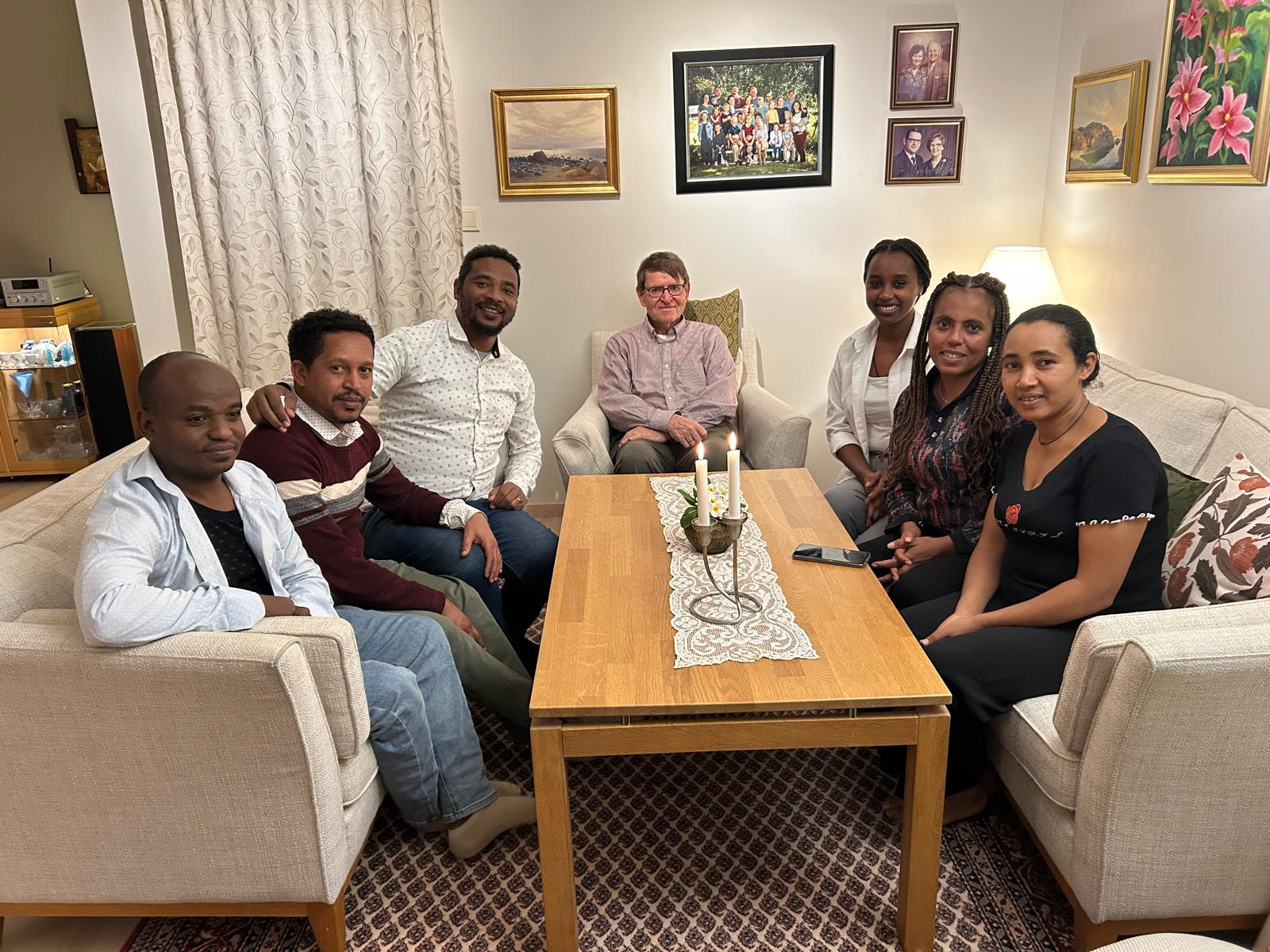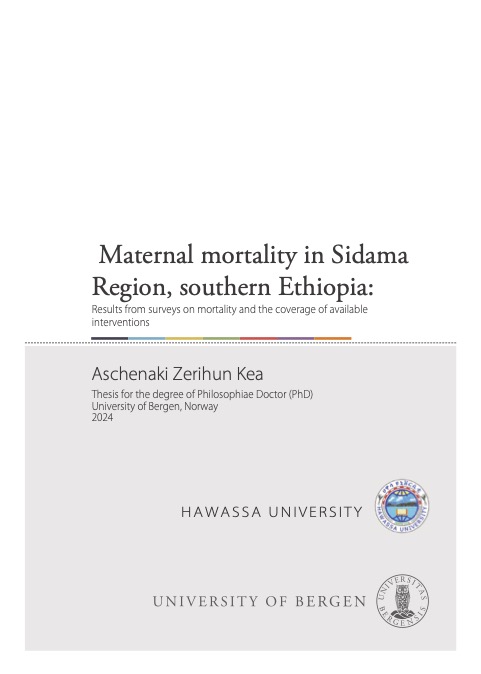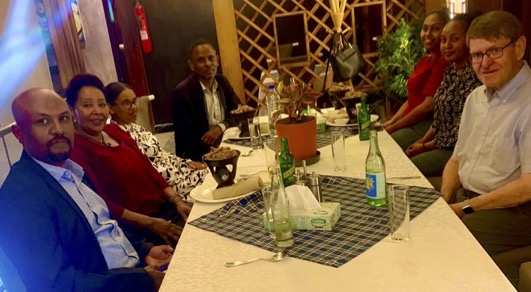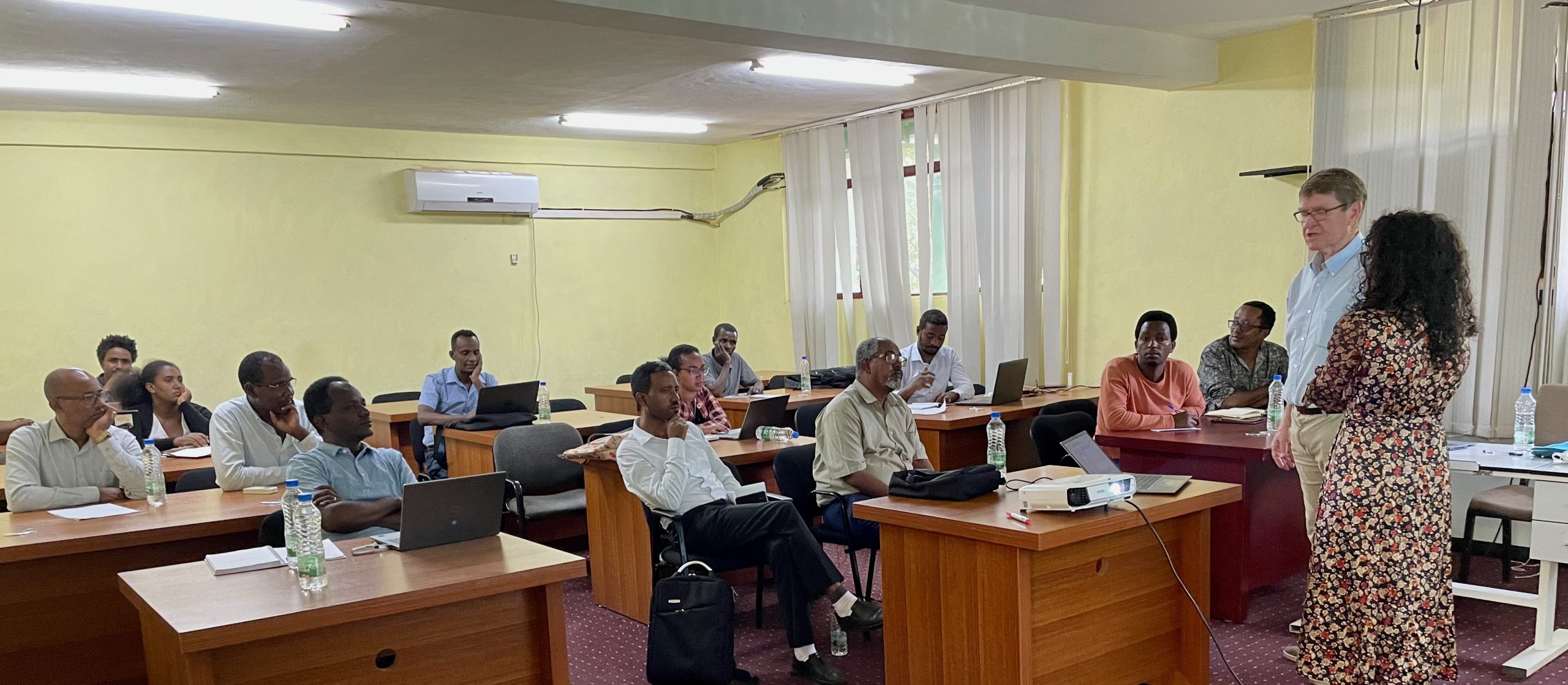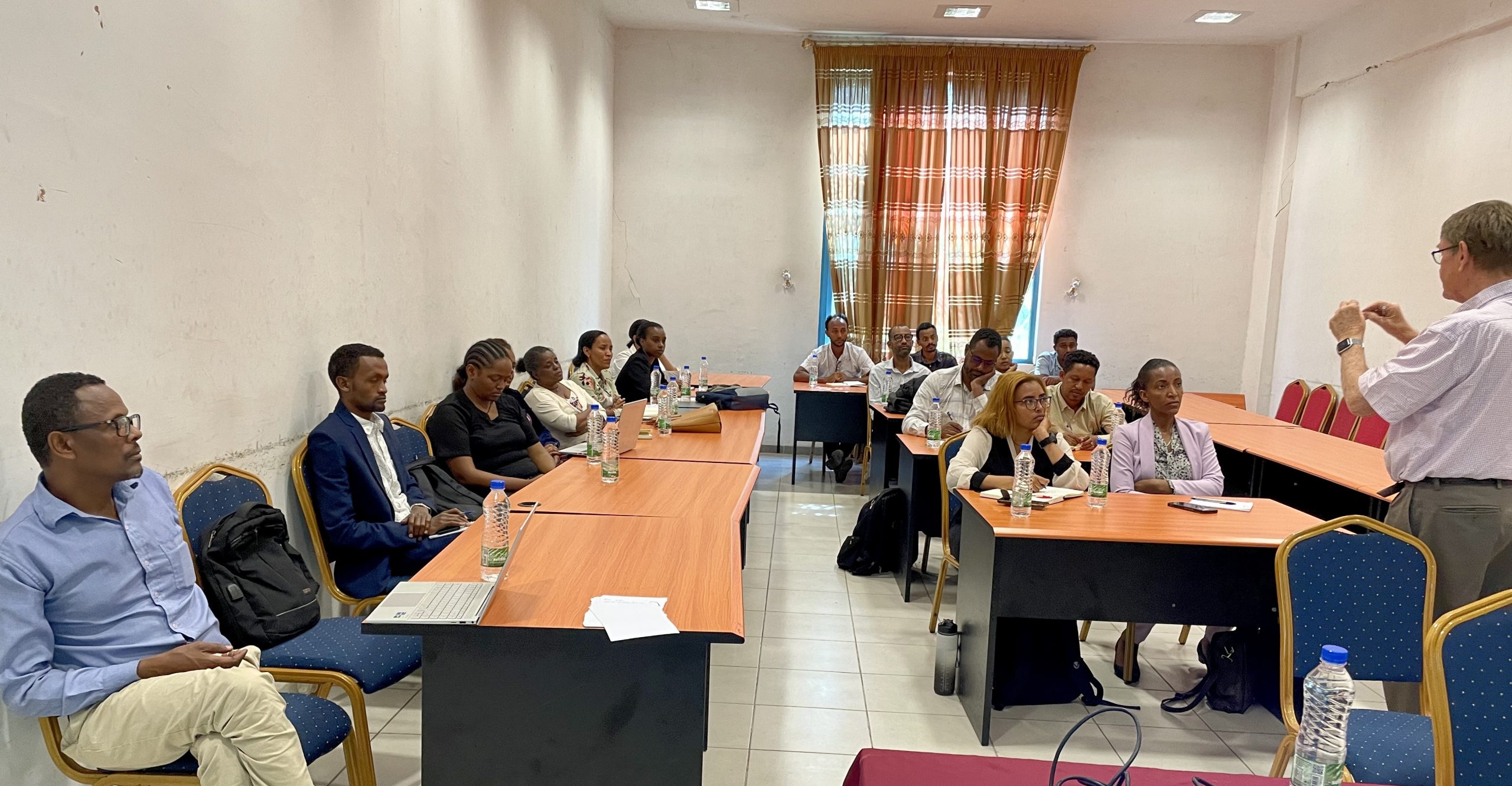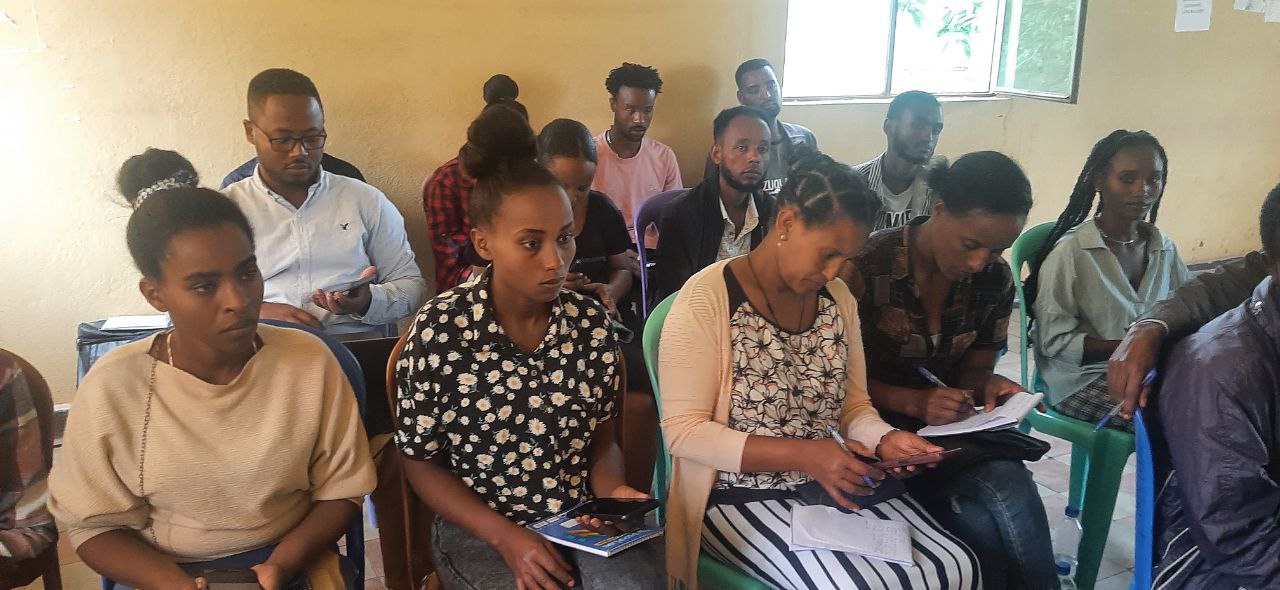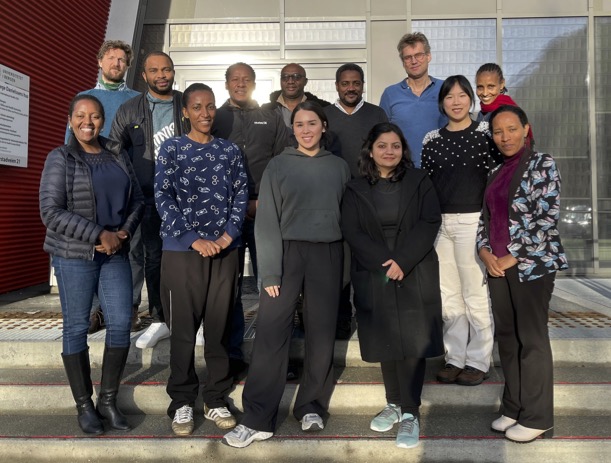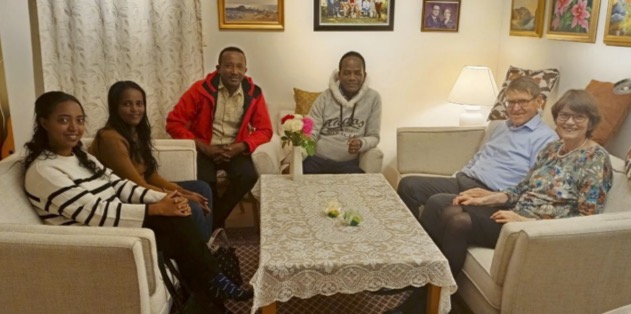Aschenaki Zerihun Kea, from Yirga Alem in southern Ethiopia, is a PhD student in the Joint PhD program at Hawassa University and the University of Bergen (Senuph – I project). He is about to defend his doctoral work.
His research aimed to measure the magnitude and variations in maternal mortality and assess the coverage of skilled birth attendants in the Sidama Region, essential for improving maternal healthcare in Ethiopia.
The study found high maternal mortality in the Sidama Region, with significant district variations. In the past decade, districts of the region have not seen an equal reduction in maternal mortality.
The main impact of this research is to highlight the importance of ensuring equitable emergency obstetric care in all districts of the region. Female education must be
strengthened, and the deployment of midwives has to be improved. All women must be
encouraged to get antenatal care.
His publications on the community surveys of maternal mortality in Sidama include:
Kea AZ, Lindtjorn B, Gebretsadik A, Hinderaker SG.. Variation in maternal mortality in Sidama National Regional State, southern Ethiopia: A population based cross sectional household survey. PLoS One. 2023 Mar 7;18(3):e0272110. doi: 10.1371/journal.pone.0272110.
Kea AZ, Lindtjorn B, Tekle AG, Hinderaker SG.. Reduction in maternal mortality ratio varies by district in Sidama National Regional State, southern Ethiopia: Estimates by cross-sectional studies using the sisterhood method and a household survey of pregnancy and birth outcomes. PLoS One. 2023 Oct 12;18(10):e0276144. doi: 10.1371/journal.pone.0276144.
Kea AZ, Lindtjørn B, Tekle AG, Hinderaker SG (2023) Southern Ethiopian skilled birth attendant variations and maternal mortality: A multilevel study of a population-based cross-sectional household survey. PLOS Glob Public Health 3(12): e0002466. https://doi.org/10.1371/journal.pgph.00024666.

